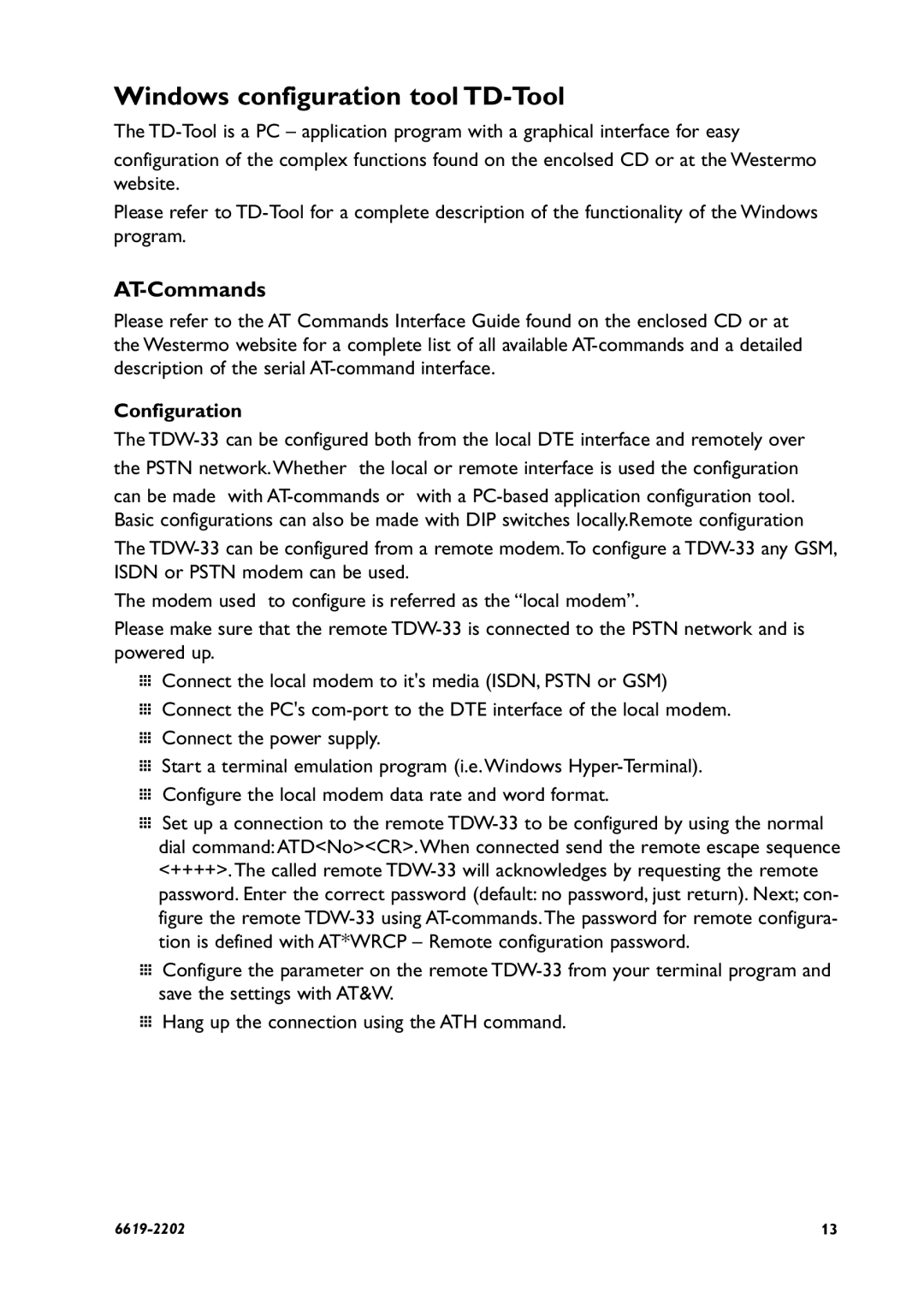TDW-33 specifications
The AB Soft TDW-33 is an advanced software solution designed to revolutionize the way professionals handle data management and workflow processes. With an emphasis on efficiency and user experience, the TDW-33 is engineered to support a wide range of industries, ensuring seamless integration into existing systems.One of the main features of the TDW-33 is its powerful data processing capabilities. The software can manage large volumes of information quickly and efficiently, thanks to its robust architecture that leverages modern processing technologies. This means users can access, retrieve, and analyze data in real-time, promoting informed decision-making and operational productivity.
Another standout aspect of the TDW-33 is its intuitive user interface. Designed with user-friendliness in mind, the software simplifies complex tasks, enabling users of varying technical proficiency to navigate effortlessly. The interface is customizable, allowing organizations to tailor it to their specific needs and preferences, thereby enhancing user engagement and satisfaction.
The TDW-33 also incorporates cutting-edge automation features. By automating repetitive tasks, such as data entry and report generation, users can significantly reduce manual errors and save time. This not only improves overall efficiency but also frees up valuable resources for more strategic initiatives.
In terms of technology, the TDW-33 leverages cloud computing, providing users with the flexibility to access data and applications from anywhere, at any time. This cloud-based approach ensures that data is securely stored and backed up, minimizing the risk of loss. Additionally, collaboration tools integrated into the platform allow teams to work together more effectively, regardless of their physical locations.
Security is a top priority with the TDW-33, featuring advanced encryption protocols and compliance with industry standards to safeguard sensitive information. Organizations can rest assured that their data integrity and confidentiality are protected against potential threats.
Furthermore, the TDW-33 supports integration with various third-party applications, enhancing its versatility and functionality. This interoperability makes it an ideal choice for organizations looking to enhance existing workflows without overhauling their entire technology stack.
In conclusion, the AB Soft TDW-33 stands out in the realm of data management software, offering a blend of efficiency, user-centric design, and robust technological features. Its ability to streamline processes while ensuring data security and accessibility makes it a powerful tool for any organization aiming to enhance operational capabilities and drive success.
